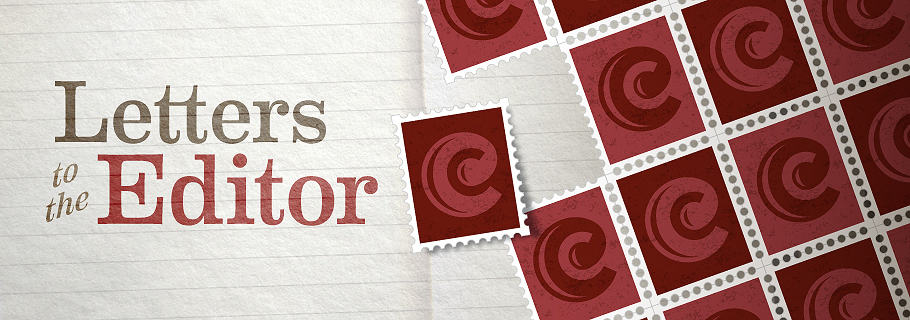Last week I wrote about What We Lost When We Lost Our Hymnals. In that article I mostly wanted to comment on how changing from one medium to another—in this case, from hymnals to PowerPoint screens—has a great deal of significance. As Marshall McLuhan famously said, “the medium is the message.” Every medium promotes certain ideologies while diminishing others. While hymnals and PowerPoint screens may achieve the same effect of allowing us to sing together in church, their underlying ideologies are different and each has both strengths and weaknesses. That article generated far more feedback than I had expected and I decided it would be useful to round up some of the letters in this special edition of Letters to the Editor.
One thing I thought of as I read it was that like the well worn pages of your personal or family Bible the well worn pages of the old hymnals often reflected the values and impact of the church on the community and the church members. Turning those pages evoked memories of ancestors that turned those pages before you. I think in the haste to have the latest and greatest technology and glitz we’ve lost whole generations that will never truly grasp what has been lost-not just from hymnals but the legacy contained within those pages.
—Jeff S, Dallas, TX
One could argue either way from your article: using projection means the issues at hand are liabilities which must be addressed; or, these are the reasons why we mustn’t abandon hymnals. A couple of other thoughts to add to your points. Throwing words on a screen makes it more difficult to consider the full meaning of a great lyric because your eyes can’t graze over previous lines or stanzas for context. If you’re truly focusing on the meaning and theology of the lyrics, this issue is bound to be important from time to time.
Another thought: doesn’t throwing lyrics on a screen, which a moment later are gone, tend to reduce them to being just so much ephemera? The permanence of a lovely book strikes me as being a more fitting statement about the timelessness of great theology and hymns that reflect the faith once delivered to the saints being handed down from one generation to another.
Finally, A hard copy of a hymnal will never crash, be deleted, run out of battery power, nor become obsolete. It is far more permanent than any technological device. My oldest hymnal, which is by no means exceptional, was printed in 1832. And, if hymnals are used and annotated in private devotional times, they become a legacy to be handed down to children and grandchildren.
Granted, I’m saying this as part of a church ministry that self-published a new hymnal in 2016 (and not the only one in our fellowship to do so) because we’re not yet ready to give into this shift.
—Bill B, Sun Valley, CA
As one who grew up with Hymns and Hymnals, who has a collection of Hymnals in his library, and one who has a degree in music and currently leads the worship of our church, I think your article is a bit slanted. In fact I would challenge a few points not for disagreement but more for a faulty argument.
We lost an established body of songs. This I would agree with. I think you start in a great place. This is one of the major drawbacks of contemporary music in general. Not much lasts. I see this as a product of a disposable society in general.
We lost a deep knowledge of our songs. This is where I think you start to go into faulty logic. While this may be true for some others find the exact opposite. With the proliferation of worship music becoming main stream on radio, I find more people who know a song that we introduce because they heard it on the radio.
We lost the ability to do harmonies. This is more a product of the culture of a church in general. It think this is more of a result of a loss of choirs in the church more than the type of music performed. Harmony is something that is taught when you have larger sections of people working on music together. We do some great modern worship that has amazing harmonies so I do not believe that it is a product of losing hymnals.
We lost the ability to sing skillfully. Once again this goes to the level of training and the type of choral instruction that occurs in a both choirs and rehearsals.
We lost the ability to have the songs in our homes. This is a straw man, many churches who have incredible bands (and even some who don’t) make CD’s of worship music that their people take home and in their cars. The ability for the average lay person to have private and family worship times has actually increased with the ease of recorded media. I was raised in a home where music was very important. But we did not have sing-alongs in the home because outside of myself my family was not instrumentally or vocally trained. But I do remember my grandmother pulling out the record player and turning on an old Gaither album and singing to the top of her lungs “He Touched Me.”
Our ministry still does hymns (without a hymnal), and I recognize the fact that some things may be lost in the process. That being said I don’t know if there will be hymnals in heaven, and for that matter they will eventually all be destroyed when God remakes the new heaven and new earth! Just a bit of a reply for the other side of the argument .
—Rod K, Oak Ridge, NJ
I so wish we could go back to using the hymnal again! Here are some more things I’ve really missed over the last decade or so:
Punctuation. Most praise songs seem to have none! No periods or commas to help us understand the syntax or meaning of the words, which are often just short phrases, not complete sentences anyway. Often there are not even apostrophes to show possession (we love to sing in Jesus name or about Jesus blood a lot!). And sometimes the punctuation we do have is wrong, so we ask rather than exclaim: How great is your love, O Lord? Big difference!
Words in my hands. When you only see four lines at a time, there’s no time to see how the song as a whole works together (especially when you’re already struggling to comprehend due to lack of punctuation!). I like to know what I’m supposed to be singing, and when I want to think about what the words mean or what’s actually being said or implied, there’s no time, because we’re on to the next slide already.
Musical notation. Not just because then we can sing parts, though I really miss that, but so that unfamiliar songs can be learned more quickly. With a new song every other week, it’s really hard to learn the music (especially for us who are getting older, and who don’t listen to Christian radio regularly).
Broader and deeper selection. Our hymnal has all 150 psalms at least once, plus so many hymns, covering so many areas of theology and life. Praise songs that we sing don’t seem to cover nearly as wide a range. Our hymnal has comprehensive topical and scriptural indexes, so it’s not hard to find appropriate songs to sing for most situations. And with the scripture texts referenced at the bottom of the page, one can go back to scripture to see the words in context. Many praise songs have snippets of phrases from scripture, but without much context, and often we’re not even aware that scripture is being quoted, let alone if it’s being taken out of context.
Skipped verses. We do still sing hymns from time to time in our church (though usually projected on the screen, despite there being hymnals in the pews). However, it’s very rare that we sing all the verses to the hymn, which always has me wondering, what are we skipping, and why?
Not something I miss but just really resent is being held hostage to inattentive or inept PowerPoint operators. I know, I need to show grace here, but when the screen doesn’t get changed till the end of the first line of the next screen, then we’ve all missed the opportunity to sing. And when we frequently see every slide flipped through in quick succession while the operator tries to get us back to where we should be, my attention is drawn away from worship and my heart quickly turns to annoyance.
And finally, there’s never a worry with a book that the technology is going to fail-unless the power goes, and we have no lights, but then the powerpoint won’t be working either.
—Ellen, Calgary
I am grateful I had the privilege of growing up in a Christian family. My mother played the piano and organ and taught piano. Each of we seven children played an instrument of some type for a period of time and there was much singing in our home. I learned to sing and hear parts as my family would drive in the car on short trips. That was before good Christian music was readily available on cassette tapes, CDs and even radio.
Our small church here in the coalfields of WV, (my husband is the pastor) still uses a hymnal, and I’m so very happy that we do. As our grandchildren come to visit, they seem to enjoy learning to navigate the songs on a page, as their church doesn’t use them.
My main thought about your article was that it seems that change can be made in one direction only, but not another. Why is that? All it would take is someone to write a top selling book on the subject and everyone would probably jump on board with such a novel concept. Or maybe it couldn’t take place until this generation is gone, and then it could really be the “new” idea for churches to follow. Personally, when I have attended my children’s churches that have gone to the worship band and songs on the screen, which I don’t know and the melody is very unsingable, I feel totally lost and don’t feel a part of that part of the service. Some churches still have the hymnals in the pews along with the words or the hymn on the screen.
For my son who is in a wheelchair, and for the elderly who are not able to stand through 15 minutes of singing, they aren’t able to participate at all because they are unable to see the screen.
—Ginger H, Chapmanville, WV
It is worth pointing out that the Trinity Hymnal compiled by Great Commission Publications has more than hymns. It has the Apostles’ and Nicene Creeds. It has responsive readings from most of the Psalms—the original hymnal of God’s people. Being a presbyterian and reformed hymnal, it has both the entire Westminster Confession of Faith and the entire Westminster Shorter Catechism. When you lose this hymnal, and ones like it, you lose more than music.
—Matt A, Covington, GA
I have many fond memories of standing around the piano as a family at home, hymnbook open and mum tinkling the ivories. It seems the privilege of a bygone era for so many. And I don’t believe the current generation are better off or richer in spirit for the lack of hymnbooks. But I have a greater concern in regard to the disappearance of hymnbooks.
My husband and I are missionaries in Africa, where traditional culture is formed around orality rather than literacy. Because of the place of orality the cultural elders are the “storekeepers of knowledge,” they also traditionally control what and how much the average person knows and is exposed to. I do not believe it is a step forward to remove individual access to written songs and their music. It seems to me to be a backward step.
In this year of great celebration of the Reformation, it is worth remembering that era of history was impacted by the fact that the possession of the written Scriptures was released from the hold of the church leadership alone, and placed in the hands of individual church members. John Wycliffe is known as “the morning star of the Reformation.” While the hymnbook is not the God-breathed Scriptures, it is a means of still putting in written form the applied truth and teaching of the Scriptures. Songs only accessible via PowerPoint, a couple of phrases at a time for a few seconds of a Sunday, removes easy anytime—access by the church member.
It also means that a person only has knowledge of the songs that the leaders happen to choose. A hymnbook, while still not having every hymn ever written in it, would give a person access and knowledge of hundreds of songs. The Methodist Hymnbook on my shelf has almost 1000 entries and the hymnbook of the Baptist church of my childhood had over 700.
The disappearance of hymnbooks also meant the disappearance of what my childhood church called a “favourites time.” Often on a Sunday evening the pastor would announce that members of the congregation could suggest a hymn number and why they chose it, and then everyone would sing it. That was a really precious time which encouraged the concept of coming to worship together as God’s people gathered, rather than church always being a leader deciding the content of the gathering and the people just following the given agenda. It also often meant that as you browsed through the hymnbook to decide on a “favourite” to choose you were reminded of other hymns you had forgotten about.
While PowerPoint has its positives, it also has its negatives. I’m not saying to never use PowerPoint, but if we are going to have to live with the move to PowerPoint, I would like to see churches still issuing hymnbooks/songbooks at least of a ‘words’ version, maybe first in soft-copy for iPads, phones and computer use, alongside the PowerPoint, so that people have anytime-access to the songs, and still having some hymnbooks available for use in small groups and for church member access and when hymns are announced the hymnbook/songbook number is also announced so a member has the option of using the hymnbook if they wish-to either be able to harmonize if the music is there and/or to have the blessing of being able to see the whole song/hymn and even ponder/reread it afterwards.
I think we have lost far more than we realize and have not necessarily enriched our lives by severing ourselves from a hymnbook that we can hold in our hands and have in our homes.
—Sandra F, Botswana
One of my favorite things about hymnals is the person next to me sharing the book with me. When someone new sits next to me, finding the page and sharing with them is such nice fellowship. My mother is gone, but one of my favorite childhood memories is sitting with her in church and finding the page in the church bulletin for her. She knew every word to every song but I didn’t realize until she was old, living in a home and after she and I shared the hymn book at church services, she told me she could not even see the songs on the pages but loved holding the book with me. She never missed a note singing at services that day.
—Myra Brewer
I preach in some churches which use hymnals, and others which use projection. There are two other things which I think we lose when we take the hymnals out:
When it’s my turn to be in the congregation, I sit down 5-10 minutes before service time, and I read through the lessons for the day, and I read through all the hymns/songs for the day, and I pray through them. I learnt this as a young man, and I still think it’s good preparation for worship.
When I’m preaching, I like the congregation to have the hymnals ready so I can refer to the words of hymns and songs in my sermon. The original point of setting words to music was to help you memorise the holy truths they express, and to remember and sing them later on, when you’re living your daily life. So I’ll use the words as prayers, I’ll point out how phrases from what they’re about to sing are reflected in the Bible reading they’ve heard. I spend a long time in preparation to make those connections, and I’d like it to be easier for the worshippers to carry them away when they go home.
Like you, I don’t think we’re going to turn the clock back. And I use projection gladly for what it’s best at—images/videos, responsive prayers, words that aren’t in any books, and so on. But we do need to find techniques that allow us to retain what was creative about the things we’ve left behind.
—Vince G, Welwyn Garden City, UK










